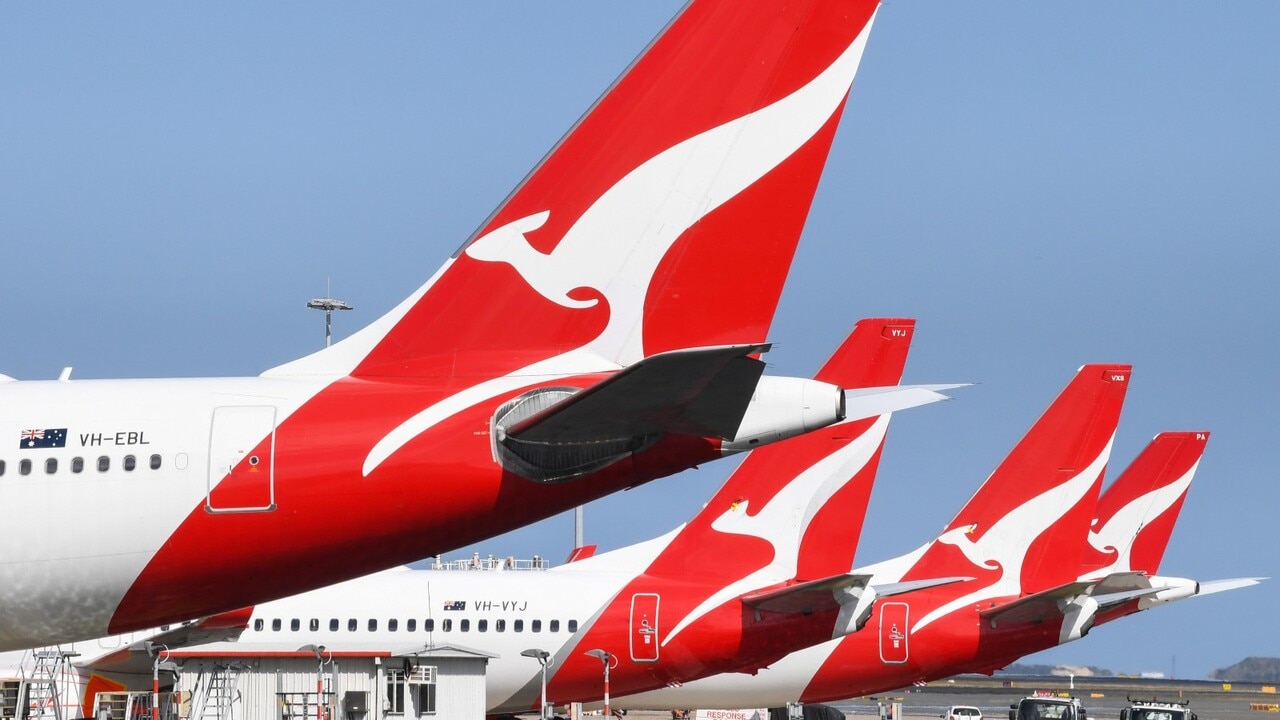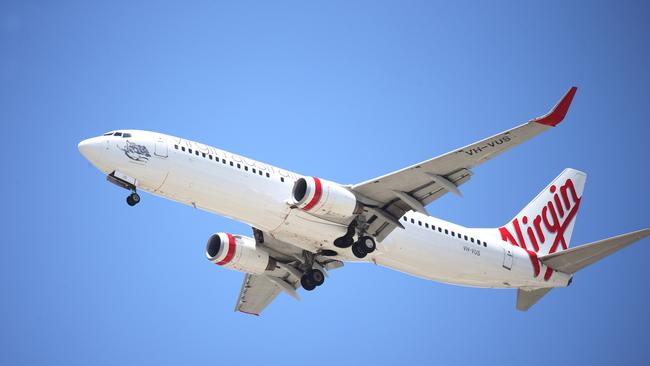How Virgin, Qatar Airways deal puts competition in the air
Cashed-up Qatar will likely use Virgin as cover to get more flights into Australia, which ultimately means serious competition for travellers. But what does it mean for Qantas?

Virgin’s blockbuster $600m-plus deal with Qatar Airways is just the ticket for Australia’s flagging aviation market and if the regulatory tests can be passed, this will ultimately mean serious competition in the air for travellers.
Much of the battle will take place across international flights, with a well-resourced Qatar seeking to use Virgin as cover to get more of its planes, and therefore more capacity, into Australia.
As with anything in Australian aviation, all routes eventually lead back to Qantas.
And it was the furious lobbying last year of the Prime Minister under the airline’s mercurial former boss, Alan Joyce to try to stop Qatar’s bid to increase flights into Australia, that has pushed it toward Virgin.
Now the Australian flag carrier has the most to lose from the tie-up.
The deal emerged as Qantas shares hit a record high this week, but that has been short lived. Qantas shares fell nearly 3.4 per cent on Tuesday over fears its smaller rival now has the confidence – and access to the balance sheet muscle – to bring forward its plans for international expansion.
Since its near-death experience, Virgin under its private equity owner Bain Capital, has been a cautious competitor compared with its free-spending pre-pandemic self.
It is no longer burning cash by chasing market share for the sake of hurting Qantas. Under boss Jayne Hrdlicka – the former Jetstar boss – Virgin Australia has more been content to play safe in middle ground.
Qantas had the premium and corporate market to itself while its Jetstar rival saw off tiny competitors like Rex and even Bonza at the value end. Still, being a comfortable number two, is no recipe for growth.

Qatar’s planned 25 per cent stake is also the key piece of the puzzle that Bain Capital boss Mike Murphy needed to move ahead with his on again, off again, stock market listing.
Bain wants its exit ramp, but only at the right price. Bain missed its window earlier this year and with ticket prices cooling and the economy slowing, options for another float were narrowing.
Having Qatar aboard, which gives Virgin global aviation expertise as well as likely cross-savings in fuel and aircraft maintenance, is just the branding Bain needs to return Virgin to its $2.5bn IPO some time next year. The Qatar name and plans for international growth will be the carrot to attract international investors into the IPO
So too, a tie-up with Qatar’s loyalty program substantially bolsters the value of Virgin’s own Velocity that now has more than 12 million members.
Importantly Qatar’s entry price – which has not been disclosed – has put a valuation on the airline heading into the IPO, including a floor price allowing Bain to again start marketing Virgin.
The Qatar investment is likely to make its way back to Bain, as well as used to refinance Virgin’s unsecured loans that are due to mature at the end of this year.
Bain has already done well, last year paying itself a $730m cash windfall from a revived Virgin.

The Australian’s Bridget Carter first revealed in August last year that talks between the two airlines were under way shortly after Qatar had been knocked back on efforts to fly more planes into and out of Australia. Then my colleague Tansy Harcourt last month reported talks were at the sharp end between Qatar and Virgin for “Project Doubles” that would let the Mid-East airline take a cornerstone stake in the Australian carrier.
The code name for the deal was a reference to Virgin’s outgoing boss, Jayne Hrdlicka, who as a chair of Tennis Australia is a fixture every summer at the Australian Open.
And that’s the final piece of the puzzle for Bain: to find a new chief executive for Virgin to take to the market as Hrdlicka is due to leave in coming months.
The exit will be bittersweet for Hrdlicka given as an experienced aviation boss she was at the centre of negotiations with Qatar, ultimately bringing to life the deal that sets Virgin up.
Qatar Airways is not only among the fastest growing international players by fleet size, it is now one of the world’s most significant aviation investors. It has built up a portfolio of cornerstone holdings in a string of airlines, including a 25 per cent stake in British Airways owner International Airlines Group.

It has a smaller stake in South America’s Latam Airlines and a 10 per cent stake in Hong Kong’s Cathay Pacific. In August, it snapped up a 25 per cent stake in South African carrier Airlink, which flies to more than a dozen countries across Africa.
The aim of the investments – including Virgin Australia – is to ultimately funnel more passengers through its Doha hub and then link them into Qatar’s network.
For Qatar, the deal will see Virgin make plans to return flying to international markets but this time to the Middle East. This is now slated for next year. More routes will be added cautiously given profit margins are much skinnier than domestic flights.
And by flying Virgin under a wet lease arrangement, or using Virgin’s operator certificate, Qatar gets around parts of the Open Skies agreement and secures more of the coveted slots to fly into Australia. A passenger can book a Virgin ticket to Europe and the aircraft will be a Qatar plane and crew leased by Virgin.
This arrangement will come under scrunty by the competition regulator, the ACCC, and is expected to come under furious criticism from rival Qantas, as well as aviation unions. Although much of this will be muted given it has a codeshare alliance with two Middle Eastern rivals, Emirates and Etihad.
While Qatar won’t get a rail run with foreign investment rules, particularly with tougher rules around state-backed investments, the airline will have public momentum behind it. And this is where the politics is finely balanced.
The Albanese government blindsided Qatar last year when the airline applied to bring more flights into Australia. This call backfired badly, and merged with broader anger about soaring air ticket prices and Qantas’ own reputational woes.
For the travelling public, the only politics that counts is more competition in the air.
johnstone@theaustralian.com.au
More Coverage
Originally published as How Virgin, Qatar Airways deal puts competition in the air





